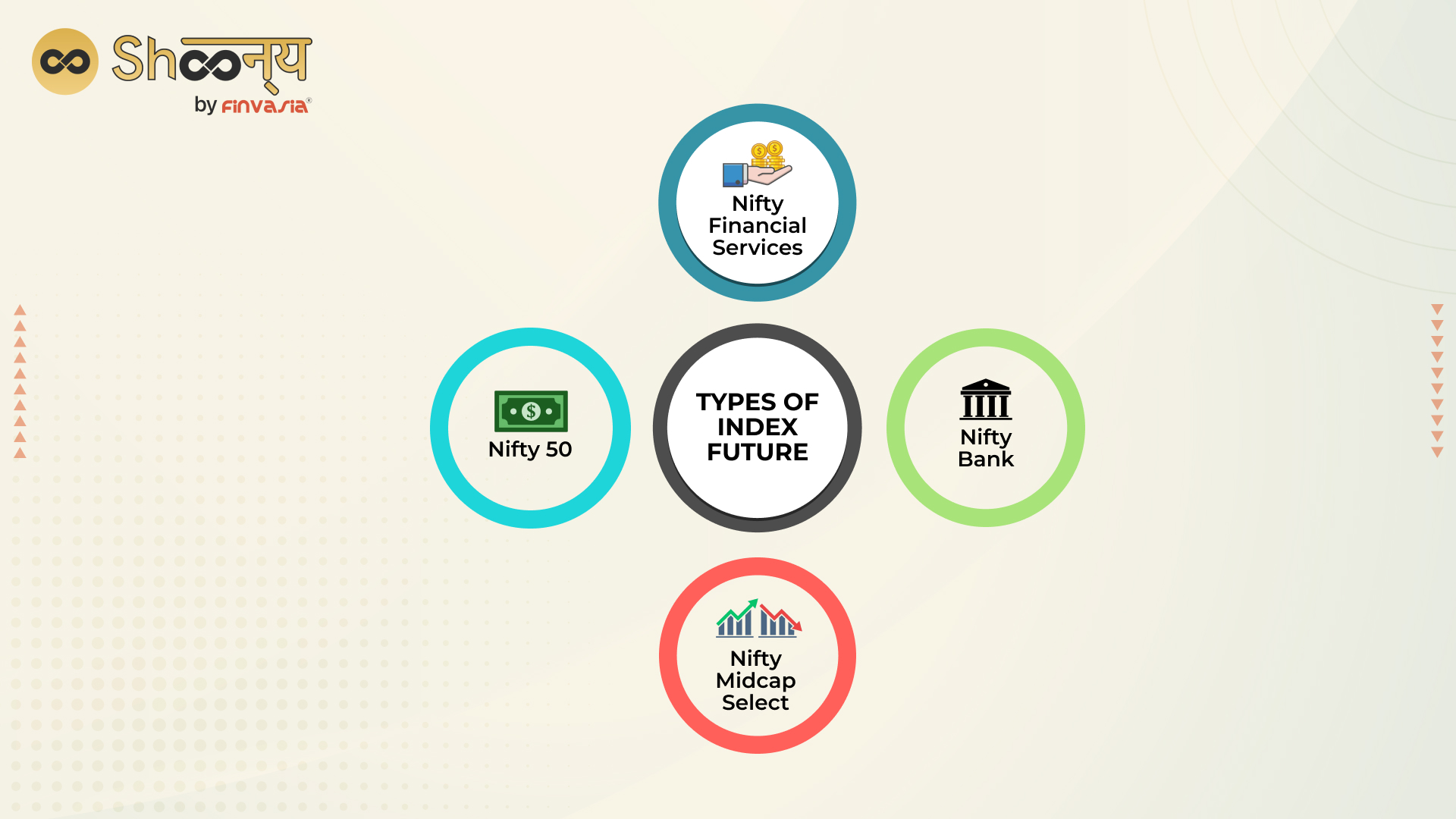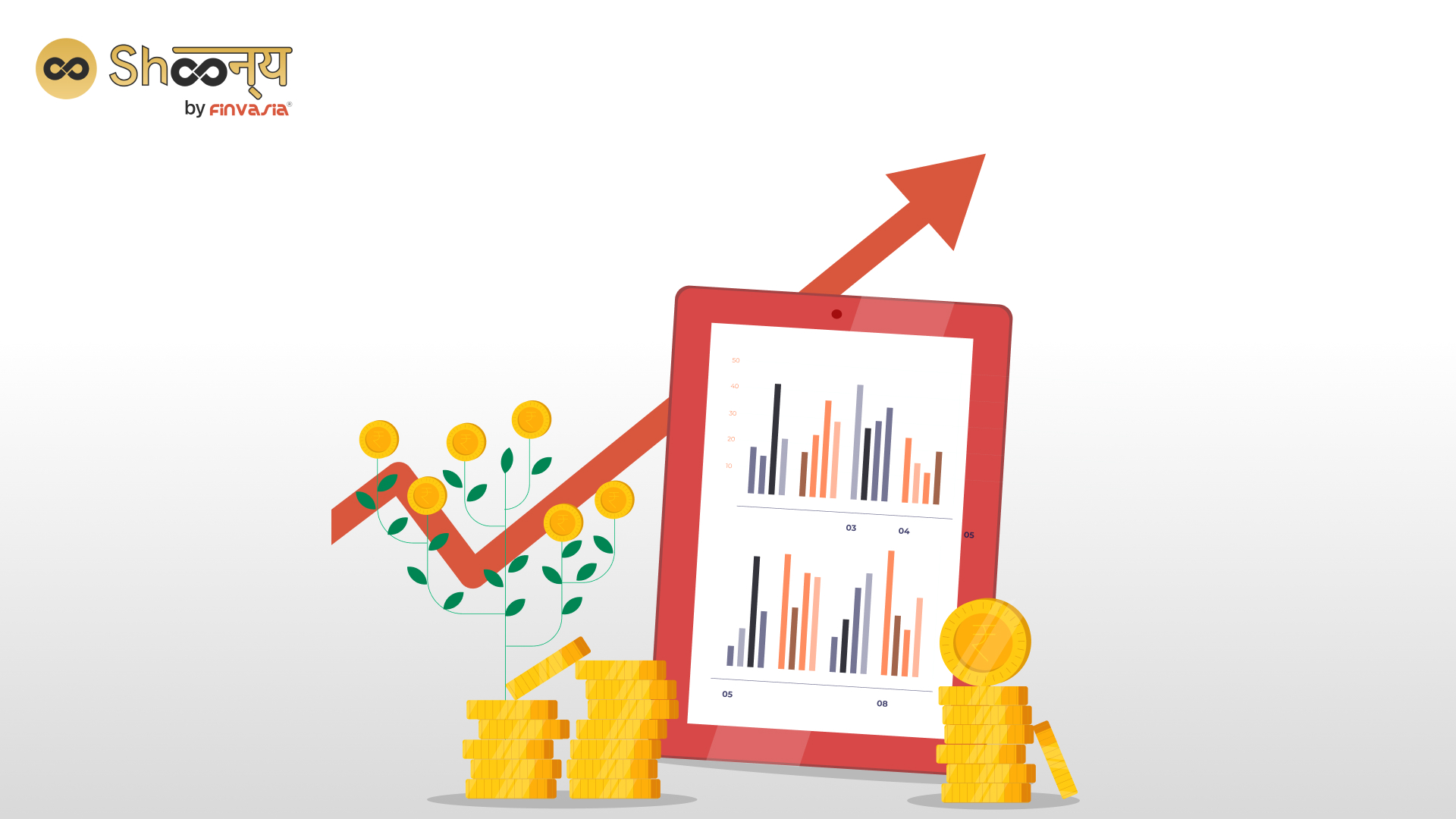A stock market index is a tool for tracking the movements of a specific group of assets or stocks, providing a quick overview of the market trend and aiding in assessing your portfolio’s performance. The stock market index can include shares from a specific sector, market capitalization, or asset class. This is about the market index, but let’s find out what index futures entail.
What are Index Futures?
It is an example of a future derivative in which the contract’s value is derived from any specified indices’ current price but is settled on a future date. Initially, only institutional investors were permitted to trade in it, but it is now accessible to everyone. Index futures’ underlying assets include the Nifty 50, Nifty Bank, S&P BSE Sensex, etc.
How does Index Future work?
Index futures contracts derive their value by multiplying the specific percentage by the price movement of the index’s stocks. You can review the performance of a particular index over the last few years and analyze how current market sentiment or news will affect the stocks within it. Then, based on your technical knowledge, you can speculate on the price and place a trade order in index futures.
Index future example–
Assume you are bullish on the market and believe the Nifty 50 index will rise in price in the coming days. The Nifty 50 spot is currently trading at Rs 15,000, and you can buy one lot of it at Rs 15,400 for the ongoing month’s expiry.
Your prediction is correct, and the Nifty 50 spot rises, raising the future contract price to Rs 15,900. In this case, your total profit will be as follows.
Profit = (Execution Price – Entry Price) × Lot Size
= (15,900 – 15,400) × 50
= Rs 25,000
Types of Index Future

Index futures are of various types, but popular ones are listed below.
- Nifty Financial Services: Also known as FIN NIFTY, this index includes 20 major companies from insurance, banking, housing finance, and other financial institutions. The minimum lot size for purchasing FIN NIFTY future contracts is 40.
- Nifty 50: The Nifty index comprises the top 50 companies in the stock market by market capitalization. You can invest in Nifty 50 futures in the minimum lot of 50.
- Nifty Bank: BANKNIFTY comprises 12 large-cap NSE-traded stocks from the banking industry. You can invest in its future contract with a minimum lot of 25.
- Nifty Midcap Select: It is also known as MIDCPNIFTY and tracks the performance of the Nifty Midcap 150 index’s top 25 stocks.
Advantages of Stock Index Future
- Diversification: Investing in a specific stock increases the risk while limiting the profit. Index futures allow you to profit from the price movement of all shares within a particular index, allowing for diversification.
- Lower trading cost: Trading in index futures contracts is more cost-effective than trading directly in equities. You will have to pay only a fraction of the underlying asset’s price and negligible commissions. If you trade through the Shoonya app, you will also be free from paying a minimum brokerage fee.
- Minimal liquidity risk: Index futures are often preferred by institutional investors. Moreover, bid-ask spreads in it are marginal. Hence, the likelihood of your transaction getting stuck in clearance is minimal.
Final Words
Trading in index futures can multiply your profit if your investment is based on a well-thought-out risk management strategy. Furthermore, you can enjoy diversification while trading on both the long and short sides by paying a small margin. But remember, if the price swing goes in a different direction than you predicted, you could lose capital in a few trade sessions.

